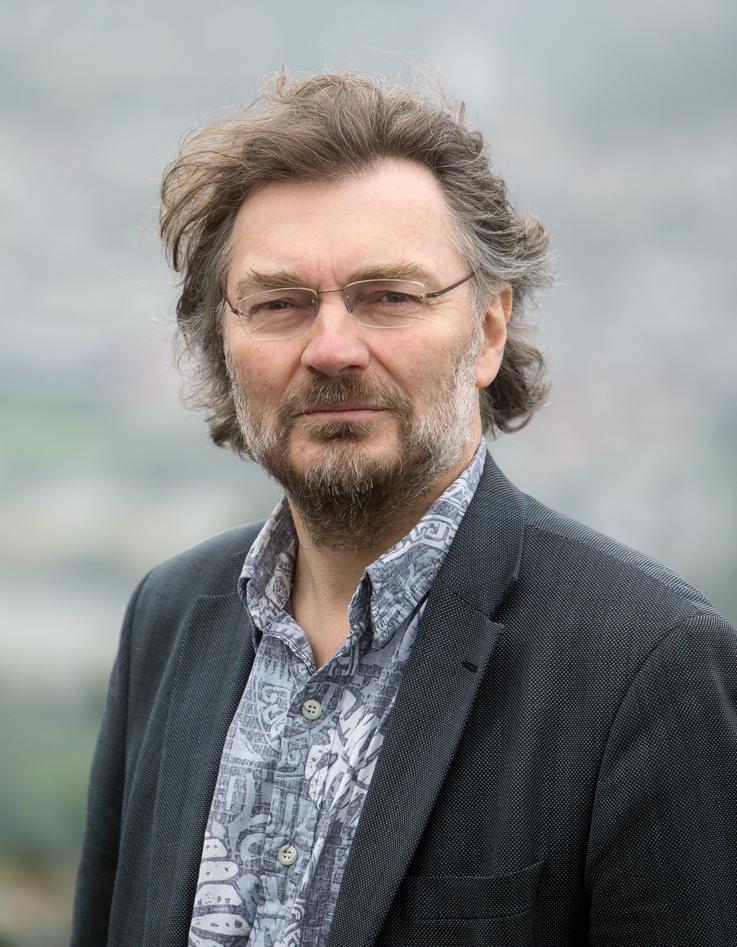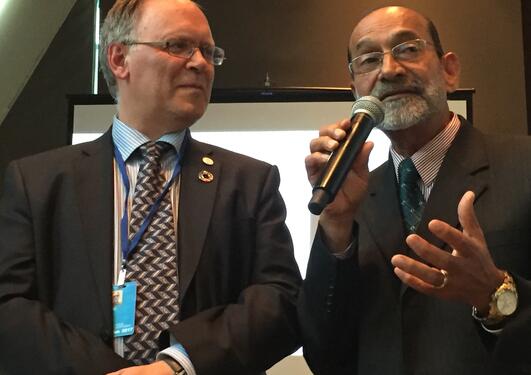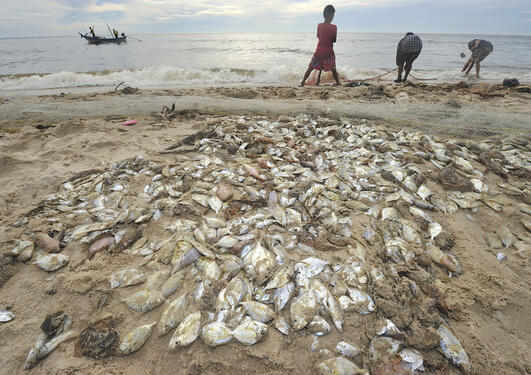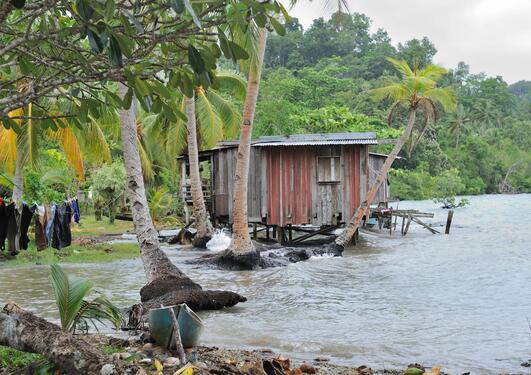UiB expands collaboration in the Pacific
At the United Nations Ocean Conference in the first week of June 2017, anthropologist Edvard Hviding established new partnerships between Norway and the Pacific island nations in marine and climate research.

Main content
Since 1986, Professor Edvard Hviding from the Department of Social Anthropology at the University of Bergen (UiB) has been involved in research in the Pacific. For a number of years he has observed how rising sea levels, new forms of extreme weather and other changes to the climate affects the culture and societies of the vulnerable island nations in the region.
Return to Moana: culture and climate
For the 2015 Bergen International Festival, he and UiB brought a group of dancers and singers from the University of the South Pacific (USP) from Fiji to Norway to perform “Moana: The Rising of the Sea”. An emotional drama about how climate change is literally drowning the small island states and looking at the paradox of the ocean that once gave life to the islanders has now become a threat to their very existence.
“Moana showed a broad European audience how the Pacific islanders experience local consequences of global climate change. This is of great importance,” says Edvard Hviding about the performance, which went on to tour several European destinations, including Britain, Denmark, and the EU capital, Brussels.
Between 2012 and 2016, Hviding coordinated the EU-funded international research project ECOPAS, which addressed the challenges the island states and the Pacific population experience as a result of climate change. Moana was at the very core of the dissemination programme for ECOPAS. Researchers from the project are now among the advisory parties the EU turns to when there is a need for experts to comment on society, culture, politics and climate change in the Pacific region.
“ECOPAS managed to refocus the EU's strategy so as to place greater emphasis on the perspectives and priorities of the Pacific and its peoples, including writing the European Parliament's new Pacific Strategy,” says the anthropology professor about the influence of the ECOPAS project on the EU's approach to aid programmes and climate policy in the Pacific.
Towards new challenges in the Pacific
At the UN's Ocean Conference, with focus on one of the Sustainable Development Goals (SDGs) adopted by the United Nations until 2030, he is met by old friends from the Pacific and research colleagues from around the world. As part of the conference, he is also involved with a group of Moana artists, who will perform at several events to truly make this a UN conference out of the ordinary.
“It is a great honour for our artists to be invited to appear for a forum of state leaders with the UN Secretary-General present,” says Hviding.
Through consultative accreditation in the UN system, Hviding has assembled a team of researchers who will attend all parts of the ocean conference, and closely monitor how the Pacific's small island states can use their distinctive role. The islands nations themselves set up a massive collective programme during the conference.
Creating anthropological alliances
As part of the UN conference, Hviding is joined by his close colleagues from the USP: prominent climate scientist, Professor Elisabeth Holland, and the Fiji ocean expert, Professor Joeli Veitayaki; as well as two American anthropologists: Jennifer Telesca and Ingrid Ahlgren, who have long experience in studying diplomatic negotiations and Pacific policy.
“With a number of voluntary commitments on behalf of UiB, meetings to advice on Norwegian diplomacy in the Pacific region, producing evening performances with the Moana artists, and ongoing fieldwork across the conference, this is a busy but unique week in New York,” the UiB anthropologist says enthusiastically.
Edvard Hviding is using the conference to build on existing networks, but also to establish new contacts in order to strengthen the social science engagement in the global sea and climate debate, and to further develop relations between the Pacific region, Norway, and the University of Bergen.




